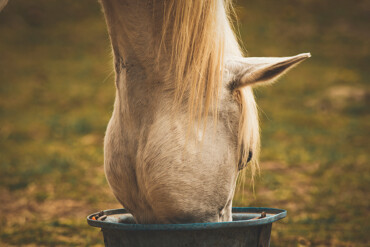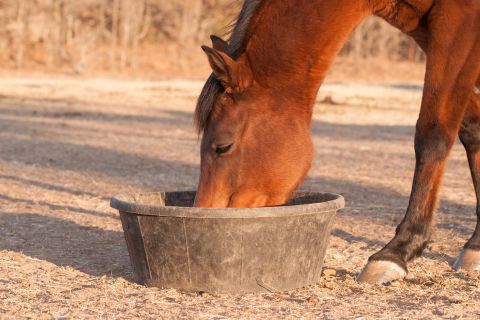Feeding Horses with Behavioral Issues: A Comprehensive Guide

Feeding horses that exhibit behavioral issues requires a thoughtful approach that addresses both their nutritional needs and the underlying causes of their behavior. This article explores effective feeding strategies, common behavioral problems related to diet, and practical tips to improve your horse’s well-being.
Understanding Behavioral Issues in Horses
Behavioral issues in horses can manifest as cribbing, weaving, stall walking, aggression, or anxiety. These behaviors often stem from stress, boredom, or nutritional imbalances. Recognizing the root causes is essential for developing an effective feeding plan.
Nutritional Factors Affecting Behavior
Certain dietary components can influence a horse’s mood and behavior:
| Nutrient | Effect on Behavior | Sources |
|---|---|---|
| High Sugar/NSC | Can cause hyperactivity and anxiety | Grains, molasses, sweet feeds |
| Deficient Fiber | Leads to boredom and cribbing | Poor-quality hay |
| Imbalanced Minerals | May contribute to irritability and stress | Salt, magnesium, calcium |
Feeding Strategies for Behavioral Issues
- Increase Forage Intake: Provide ample high-quality hay or pasture to satisfy natural grazing instincts and reduce boredom.
- Limit High-Starch Feeds: Reduce grains and concentrates that can spike energy levels and exacerbate behavioral problems.
- Use Slow-Feeders: Encourage slower eating to mimic natural grazing and prevent frustration.
- Supplement with Minerals: Ensure balanced mineral intake to support nervous system health.
- Consistent Feeding Schedule: Maintain regular feeding times to reduce anxiety.
Practical Tips
- Offer multiple small meals throughout the day.
- Provide enrichment such as toys or turnout time.
- Monitor water intake to prevent dehydration-related irritability.
FAQ
Q1: Can diet alone fix behavioral issues?
A1: While diet plays a crucial role, behavioral issues often require a holistic approach including training and environmental management.
Q2: What are non-structural carbohydrates (NSC)?
A2: NSCs are sugars and starches in feed that can affect energy levels and behavior.
Q3: How can I tell if my horse is bored or stressed?
A3: Look for repetitive behaviors like cribbing or weaving, and consult a veterinarian or equine behaviorist.
By tailoring your horse’s diet to their behavioral needs, you can promote a calmer, healthier, and happier equine companion. Remember, patience and consistency are key to success.
Would you like me to help improve the clarity or add more scientific references to this content?
